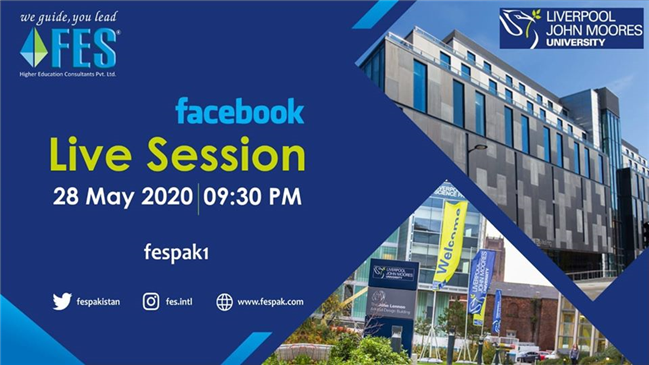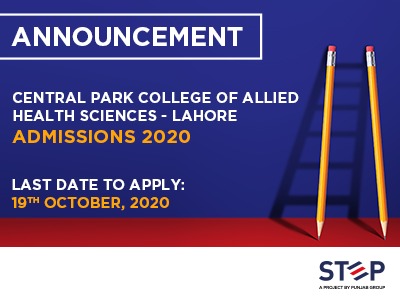Education has a clear link to health and well-being. Problems with health and well-being are much more common in the low-educated compared to the higher-educated individuals. Unhealthy lifestyles are also more common among lower educated people. So before talking about importance of education in 2020 you should read the following key factors.
Education shapes knowledge:
Education shapes people’s knowledge, skills and values. It affects the labor market and occupational position, and thus the level of income and financial position. Parents’ level of education is reflected in the health and health habits of children and adolescents.
Education improves Lifestyle and Health Standards:
Parents’ educational attainment is linked to their children’s lifestyles. The actual health differences in childhood and adolescence are still small. Already during pregnancy and early childhood, factors such as maternal smoking during pregnancy and short breastfeeding are more common in lower than upper education groups.
The better educated parents are, the better the health of young and young adults would be. Also, your own school success and degree are also linked to better health conditions. A sick person cannot achieve educational success.
For example, smoking or other drugs are much more common among rich class students than their high school peers. The earlier class of our people were not inclined or interested in unnecessary activities. The advanced and latest equipment have many advantages but they may create issues for youth. Educated persons can keep themselves safe from bad effects.
Training careers are inherited on average
Early living conditions have an impact on career choices. Young people’s educational choices are in line with those of their parents. Parents’ social status and lifestyles are partly inherited.
Absence from education, work or both may be partly due to childhood ill-health. The proportion of young unemployed people completing primary education alone is high.
The level of education should not determine the level of health
Low education as such does not explain health inequalities. Increasing the number of years of education alone will not solve the problem of health inequalities.
The causes of health inequalities are linked to social structures, such as income and wealth distribution, the education system, working structures, the health care system and housing conditions. One of the key goals in reducing health inequalities is to ensure that low levels of education are not linked to nausea and poorer health.
Today, youth is the transition to adulthood, with socialization of paid employment as one of its main goals. However, most young people today are outside the labor market.
The prolongation of youth in recent decades has also created new kinds of contradictions and tensions: education has become isolated and detached from both family and working life, and there is an inherent competition for success and opportunities. At the same time, informal support and control provided by family, and other social contexts has been replaced by official control.
Do the schools or colleges create professional mindsets?
Still, the school is increasingly faced with a wide variety of aspirations, expectations and demands. For example, working life expects the school to produce a ready-to-use workforce that is both cooperative and professional, with diverse capabilities.
In order for a school to function in any way in the service of these societal expectations, it requires children and adolescents to have a certain way of thinking and exclude alternative ways that are hindrance in study.
These expectations usually have nothing to do with students’ own expectations. Some students accept the expectations, goals and practices of society and school without difficulty. Some are really hard to convey the benefits of education for their real life.
Some students may openly express their own ideas, practices, and goals that conflict with traditional school practices and goals. Such activities are easily interpreted by the school and teachers as harassment.
Today’s young people get their most interesting stimulus from outside the school. Many of the youth-relevant experiences have moved beyond home and school to hobbies, media, computers and the Internet, shopping malls, and circle of friends. Urbanization, consumerism, cultural and entertainment industries, and the media have all taken the place of home, parents, and other related parties.
Today’s education will be enough for future?
Instead, today’s working life is full of breaks and junctions. Modern labor markets require education, grades and qualifications. Of course, society offers them, but today’s education or degree may no longer be usable tomorrow.
Lifestyles have also become permanently detached from tradition and the importance of the family and other community has diminished. Instead of their immediate surroundings, young people are constantly being given different models, especially through the media, of the kind of life they could or should live. Education does not mean we start finding ways to live separately from parents or closed relatives.
We need to rethink for the positive implementations of the knowledge what we gain from our institutes.
Does higher education Guarantees a stable job?
And while higher education no longer guarantees a stable job or opens up opportunities for social advancement. Modern society regards the taking of diplomas as a matter of choice as a basic characteristic of a successful ideal citizen.
Collecting diplomas, however, is easily made up just for the sake of being forced to do it without real interest or just due to heavy advertisement of diplomas students get admissions in them. They do not often know what will be the future and use of that particular diplomas.
Education Helps you in Respected Societal Positions:
However, the education society is consciously raising the importance and promise of education, which requires citizens to continuously train themselves to maintain their relative position in the labor market, as education and qualifications play a key role in the competition for jobs and respected societal positions. And that will be worth mentioning this regarding importance of education in 2020.
An increase in educational degree programs does not necessarily increase the actual level of knowledge, as, on the contrary, in the case of qualified people, the actual level of knowledge may even decrease.
In many cases, diplomas no longer provide any guarantee of good professional skills and competence to the employers, but rather demonstrate that they fulfill only one basic social qualification requirement, education and training.
In doing so, qualifications and education merely tell the employer that the individual has fulfilled the requirements of paid employment. It also tells the employer that the candidate is ready for new learning as an intrinsic value, respects general moral rules, and adheres to the normal social values and habits of the surrounding society.
Some will succeed in this endless race and will succeed in gaining a good job and a socio-economically respected position. On the other hand, the willingness or personal resources of some are not enough.
They have been assigned the role of loser in an increasingly fierce competition for limited jobs and prestigious occupations, social deprivation and, at worst, drifting away from what is considered a normal lifestyle.
Should you rely on one type of diploma or degree?
A young person must therefore credibly apply for at least three places to get a diploma or degree. Forcing young people into unattractive education or unpaid internships hardly motivates young people to pursue an active career.
The rise in the educational level in Pakistan has brought a lot of economic benefits here. Even though education is a big expense, it still has more positive than negative effects.
Impact of education on the national economy
When examining the impact of education on the national economy, it has been found that it has a major impact on our national economy, which emphasizes high technological know-how. In this article we will also tell you more about the impact education has had on our country’s productivity.
Importance of education in 2020 for individual productivity
Before considering the importance of education for the productivity of society, it is good to remember that education is also of great importance to the productivity of the individual.
Education is profitable Investment:
Looking at Pakistani educational research surveys, one soon finds that the return on an individual’s school year is on average 5-8%. The return is much higher if the reduction in unemployment risk brought by higher education is taken into account. Thus, education can also be said to be a profitable investment for the individual himself.
Benefits of education are difficult to measure in economic terms
Training also brings with it many benefits that are difficult to measure in economic terms. Optimal training helps the employee to have confidence in his or her ability to cope with the tasks assigned to him or her and to influence his or her work and working conditions.
This may be of great importance for the employee’s well-being at work, which at best helps to prevent immediate burn-out. On the other hand, a trained worker may otherwise have more tools to take care of his or her working ability and well-being. Although it is often said that knowledge can make a person over-confidence, in some cases, knowledge and education can also effectively prevent extra risks.
Conclusion:
The simple meaning of all the conversation is education is a great powerful source to change the life of individuals as well as the organizations. If organizations get improvements, then a country gets the better results. It also means the improvement in the lifestyles of people. Importance of education in 2020 are more than our own expectations. Ultimately it opens us new doors and create many productive ways for the students. Some limitations are also there but worth of education or knowledge cannot be skipped from any level. The institute and qualities teachers are behind in the process of educational success.




